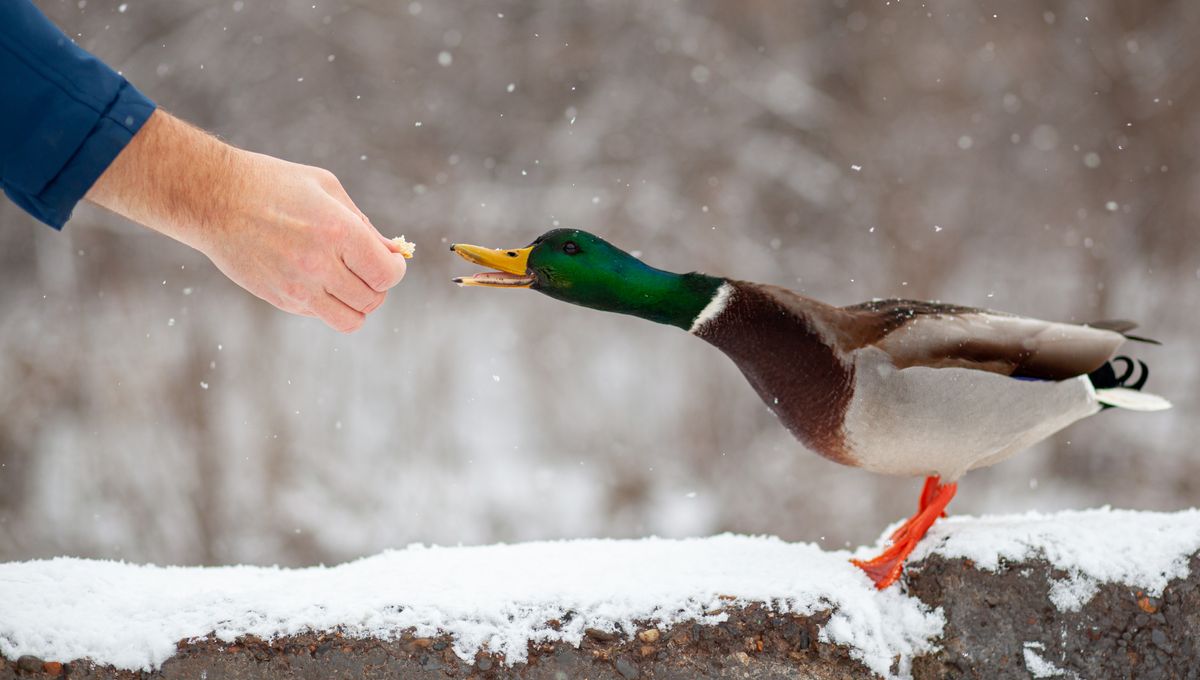
Okay, we’ve all been there with the plastic bag and the crusts saved for a weekend walk to the park to feed the ducks. Whether you’re trying to entertain a grumpy toddler or just want to say hello to the local feathered population, we list why feeding ducks bread is so last year (or last five years) and what you can give to those hungry mallards at the park instead.
What’s wrong with bread?
As no doubt the comments section of this article will tell us, people have been feeding ducks bread in the park forever. But just because something is traditional doesn’t mean it is the right thing to do. There are several reasons why bread is not ideal, let’s get into it.
First, bread has very little nutritional value to a duck, it’s basically junk food and ducks need a varied diet to be healthy. As the UK Canal and River Trust notes, stuffing themselves with bread can lead them to feel full, meaning they don’t forage for other foods with more nutritional content, which can lead to malnutrition. This is especially dangerous for young ducklings where an overreliance on human food could even prevent the young animals from learning to forage for themselves.
“Although ducks and swans can digest all types of bread, too much can leave them feeling full without giving them all of the important vitamins, minerals and nutrients they need,” said a spokesperson for the Royal Society for the Protection of Birds (RSPB) in a statement to BBC News.
Another large problem with bread is that it floats on the surface of the water and, uneaten, these soggy pieces then become a breeding ground for bacteria and fungi contributing to the rise of algae within the pond or lake that can spread and be dangerous to other species.
Furthermore, uneaten bread can also attract other animals such as rats, which can spread disease. If birds are regularly fed in the same area, it can lead to a high concentration of animal feces, again spreading bacteria and being generally unpleasant.
What should we feed ducks instead?
It’s important to understand that ducks are not going hungry without you. Ducks are omnivores, foraging on everything from pond weeds to worms, berries, and small insects. If you do however want to feed them, you probably have an assortment of duck-friendly snacks at home already in the larder or even freezer.
“We encourage people to use things like sweetcorn, porridge oats, and defrosted frozen peas as well as bird seed,” says RSPB.
Other healthy snacks include seeds, rice, any kind of lettuce like iceberg or rocket, vegetable peel, grapes, and carrots. Just note ducks don’t chew their food, they just swallow it, so any food you give them should be broken down into bite-size pieces.
By all means, go to the park and feed our feathered friends – research has suggested that bird watching is beneficial for mental health – but pack a nutritious treat for them instead of the ends of your loaf.
Source Link: Why You Really Shouldn’t Feed Ducks Bread At The Park